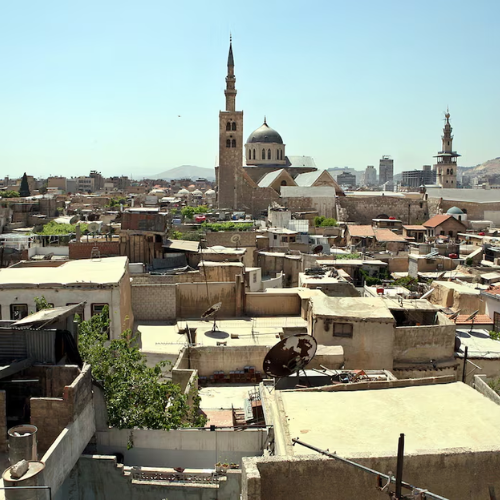The United States recently gave Syria a list of conditions it must meet to receive partial relief from the harsh economic sanctions that have been in place for years. The list was presented by a senior US official to a Syrian government representative during a meeting in Brussels on March 18.
This marked the first high-level direct contact between Washington and Damascus in years. The US, along with other Western nations, has imposed strict sanctions on Syria, cutting off financial support and trade in an effort to weaken the country’s leadership. With Syria’s economy in ruins, the government is now looking for ways to ease these restrictions.
US Conditions for Sanctions Relief
The US has laid out several demands that Syria must fulfill before any economic relief is considered. One of the key conditions is the removal of foreign fighters from high-ranking positions in Syria’s government. Reports indicate that Syria has placed foreign ex-rebels, including individuals from countries like Turkey and Jordan, in leadership roles. The US sees this as a threat to stability and wants these foreign figures removed.
Another major demand is the destruction of any remaining chemical weapons. Western nations have long accused Syria of using chemical weapons in conflicts, something Syria has denied. Now, the US is pushing for complete transparency and elimination of any stockpiles to prevent further use.
Desperate Appeal: American Jews Urge White House to Lift Syria Sanctions
Additionally, Washington wants Syria to cooperate on counter-terrorism efforts. The US insists that the Syrian government take action against extremist groups operating within its borders. With many armed groups still active, the US sees Syria’s role in fighting terrorism as crucial for regional stability.
A particularly sensitive request from the US is assistance in locating Austin Tice, an American journalist who disappeared in Syria over a decade ago. The US believes the Syrian government has information that could help locate him and is demanding a direct point of contact in Syria to assist with the search.
In exchange for meeting these demands, the US has offered partial sanctions relief. However, it has not provided specific details on what kind of relief Syria would receive or how soon it would take effect.
Syria’s Economic Crisis and International Responses
Syria’s economy has been devastated by over a decade of war, leaving millions struggling with poverty, inflation, and job losses. The sanctions imposed by the US, UK, and European nations have made it difficult for Syria to rebuild, as they limit access to international banking and trade. While some sanctions were temporarily lifted to allow humanitarian aid, they have not significantly improved economic conditions.
UK’s Sanctions Lift: A Turning Point for Syria’s Struggling Economy?
Syria’s government has repeatedly called for a full removal of sanctions, arguing that the restrictions are unfair and punish ordinary citizens rather than government officials. The US, however, maintains that sanctions will remain until Syria makes significant political and security changes.
The latest US demands signal a shift in its approach to Syria, as the Biden administration has been mostly quiet on its long-term policy for the country. Some American officials favor a tougher stance, while others believe in limited engagement to encourage reforms. At the same time, Israel has been pressuring the US to keep Syria weak and decentralized, fearing that a stronger Syria could pose a security threat.
For now, Syria is left with a difficult decision—whether to comply with the US conditions in hopes of economic relief or to resist and continue facing harsh sanctions. The international community will be watching closely to see how this diplomatic exchange unfolds.


